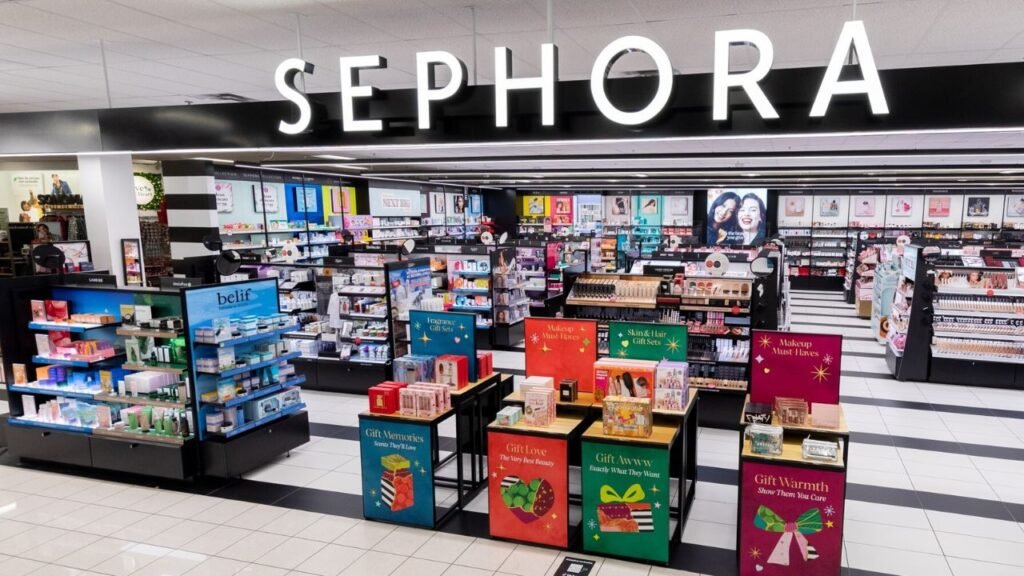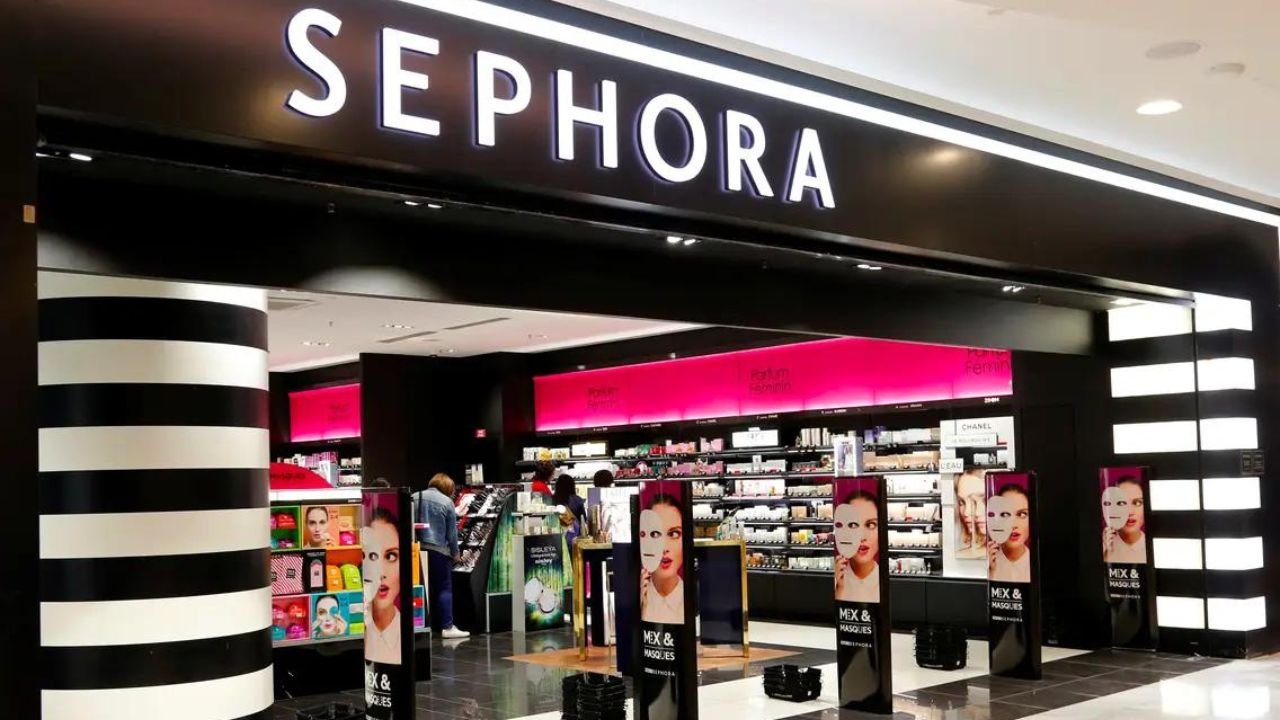Does Sephora Support Israel? Sephora has not officially declared support for Israel, but its ties to Israeli companies through its parent company LVMH have sparked criticism.
In the age of global consumerism, where ethics and social responsibility are increasingly prioritized, brands like Sephora find themselves under intense scrutiny.
Questions around a brand’s political and social affiliations can significantly impact its reputation and consumer trust.
One of the pressing questions in recent times has been whether Sephora supports Israel, especially in light of the ongoing Israeli-Palestinian conflict.
This article aims to explore Sephora’s connections, if any, to Israel, and provides an in-depth analysis of the factors contributing to this debate.
Contents
What Is Sephora?
Sephora is a renowned global retailer specializing in beauty products, including cosmetics, skincare, fragrance, and hair care.
Founded in 1969 in Limoges, France, Sephora has grown into one of the largest beauty retailers in the world, with a strong presence in over 30 countries.
The brand is known for offering a wide range of high-quality products, from luxury brands to up-and-coming names in the beauty industry.
Sephora is a subsidiary of LVMH (Moët Hennessy Louis Vuitton), one of the world’s leading luxury goods conglomerates. [Does Sephora Support Israel?]
LVMH, led by billionaire Bernard Arnault, oversees a vast portfolio of prestigious brands across various sectors, including fashion, jewelry, and cosmetics.

Does Sephora Support Israel?
The question of whether Sephora supports Israel is multifaceted and cannot be answered with a simple yes or no.
Instead, it involves examining various factors that contribute to the perception of Sephora’s ties to Israel. Below are five key facts that shed light on this complex issue:
1. LVMH’s Investments in Israel
As the parent company of Sephora, LVMH’s business activities significantly influence perceptions of Sephora’s affiliations.
Bernard Arnault, CEO of LVMH, has made notable investments in Israeli companies, particularly in the technology sector.
One of the most prominent examples is LVMH’s investment in Wiz, an Israeli cybersecurity company. [Does Sephora Support Israel?]
These investments have led to the belief that Sephora, as part of the LVMH conglomerate, may indirectly support Israel through its parent company’s financial activities.
LVMH’s involvement in Israel is not unusual for a global conglomerate seeking to diversify its investments, particularly in the innovative tech sector.
However, for consumers and activists concerned with the Israeli-Palestinian conflict, these ties raise ethical questions about where their money is ultimately going when they shop at Sephora.
2. Sephora’s Product Offerings and Controversial Brands
Sephora has faced significant backlash for carrying products from brands with ties to Israel, particularly those operating in contested regions.
A key example is Ahava, a skincare brand that sources its ingredients from the Dead Sea. The Dead Sea area, located partly in the occupied West Bank, is a highly contested region under international law.
Ahava’s products, therefore, have been at the center of controversy, with many pro-Palestinian activists arguing that their sale supports the Israeli occupation.
Ahava’s products have been a point of contention in boycott movements, leading to protests and calls for Sephora to discontinue their sale.
The controversy surrounding these products highlights the complexities of global trade, where sourcing ingredients from conflict zones can lead to significant ethical and legal challenges for retailers.
3. Legal Actions and Activism Against Sephora
Sephora has not only faced public protests but has also been involved in legal battles due to its associations with products linked to Israel.
In France, the CAPJPO EuroPalestine association has taken legal action against Sephora, targeting its sale of Ahava products. [Does Sephora Support Israel?]
The association argues that these products originate from Israeli settlements, which are considered illegal under international law.
They have demanded the annulment of Sephora’s distribution agreement with Ahava and sought compensation for damages.
These legal actions underscore the growing influence of activism in holding companies accountable for their business practices.
The case against Sephora is part of a broader movement advocating for Palestinian rights and challenging companies that are perceived to support the Israeli occupation.

4. The Global Boycott Movement
The Boycott, Divestment, Sanctions (BDS) movement, which advocates for various forms of boycott against Israel, has included Sephora in its broader campaign against companies with ties to Israel.
Although Sephora is not officially listed on the BDS website, it has appeared on various boycott lists circulated by pro-Palestinian activists and organizations.
The inclusion of Sephora in these boycott lists reflects a growing consumer awareness and activism against companies that are perceived to support or profit from the Israeli occupation.
For many activists, boycotting Sephora is seen as a way to exert pressure on the brand and its parent company to reconsider their business associations.
5. Sephora’s Lack of Transparency and Corporate Silence
One of the most critical aspects of this debate is Sephora’s silence on the matter.
Despite the controversies and legal actions, Sephora has not issued any official statements addressing its stance on the Israeli-Palestinian conflict.
This lack of transparency has fueled speculation and led to growing consumer distrust. [Does Sephora Support Israel?]
In today’s world, where consumers demand transparency and ethical practices from the brands they support, Sephora’s silence on such a contentious issue is seen as problematic.
By not addressing these concerns, Sephora risks alienating a segment of its customer base that values corporate social responsibility and ethical business practices.
See Also: Does Panda Express Support Israel?
FAQs
Is Sephora officially pro-Israel?
Sephora has not made any official statements indicating that it is pro-Israel. The perception of Sephora’s support for Israel is primarily based on its indirect ties through its parent company, LVMH, and the products it carries.
Why are there calls to boycott Sephora?
Boycott calls against Sephora are driven by its sale of products from brands like Ahava, which are associated with Israeli settlements in the occupied Palestinian territories. Activists and consumers who support Palestinian rights view boycotting Sephora as a way to protest the Israeli occupation.
Does Sephora benefit from its association with Israel?
While Sephora itself does not have direct business operations in Israel, its association with LVMH’s investments in Israeli companies and the sale of products linked to Israel may indirectly benefit the brand. This connection is a point of concern for those who advocate for Palestinian rights.
How has Sephora responded to the boycott movement?
As of now, Sephora has not publicly responded to the boycott movement or the legal actions against it. The brand’s silence on the issue has contributed to the ongoing debate and consumer speculation.
What impact has the controversy had on Sephora?
The controversy has led to protests, legal challenges, and a growing movement among consumers to boycott Sephora. While the financial impact on the brand is difficult to quantify, the ethical concerns raised by activists continue to influence public perception.
Conclusion: Does Sephora Support Israel?
The question of whether Sephora supports Israel is complex and rooted in a web of business associations, product offerings, and consumer activism.
While Sephora has not taken a public stance on the Israeli-Palestinian conflict, its ties to Israel through its parent company LVMH and its sale of controversial products have led to significant criticism and calls for boycotts.
As consumers become more aware of the ethical implications of their purchasing decisions, brands like Sephora will need to address these concerns openly and transparently.
In the absence of clear communication, speculation and distrust will likely continue to grow, potentially affecting Sephora’s reputation and customer loyalty.
For consumers, the decision to support or boycott Sephora ultimately depends on their values and the importance they place on corporate social responsibility.
In an increasingly connected and conscientious world, the choices we make as consumers can have far-reaching impacts, influencing not just the companies we support but also the broader social and political landscape.

Hi, I am Jackson Barton, a blogger who loves to share the latest news about the world. I cover big topics like the Israel-Palestine issue and news about Biden and Trump. Many people, like me, want to know whom famous people and brands support on these issues. That’s why I started my blog, to share important news and information with others who are also curious and eager to learn.

